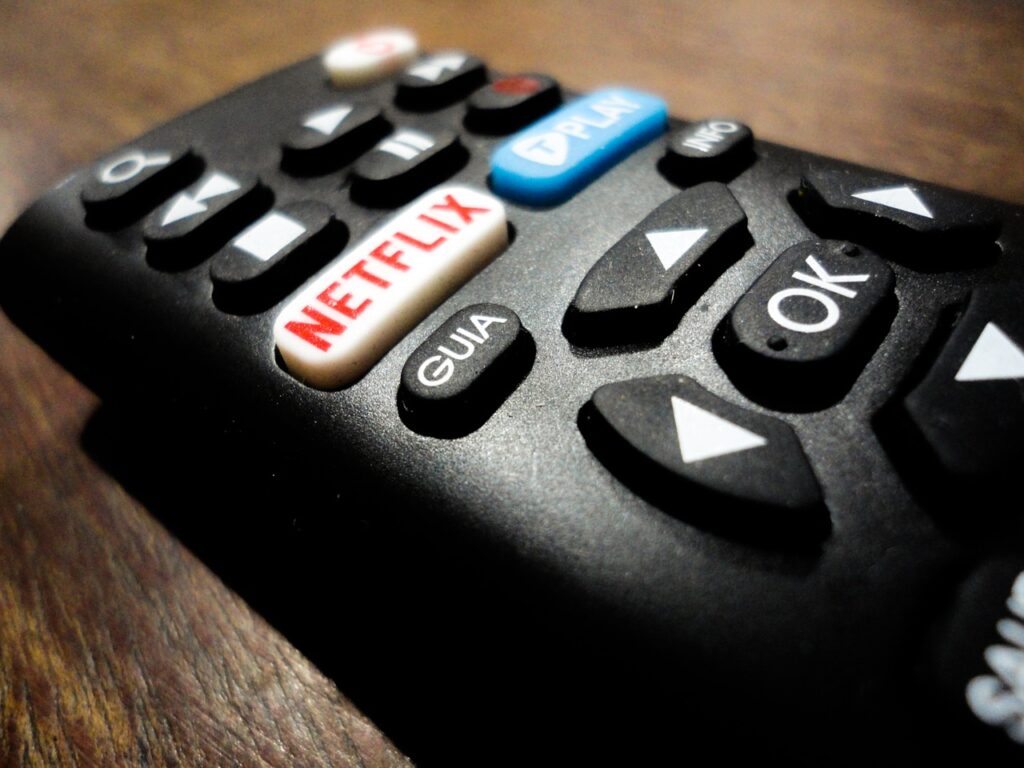In January, my husband and I took a month off TV. No Netflix, no Hulu, no TV news. Our goal was to become more intentional and creative with our evenings—playing games, reading, having friends over, conversing with one another.
Up until January, we were in the habit of watching a few episodes before bed each night. It began to feel like a rut where as soon as we put the kids to bed, we were drawn to the couch like magnets, plopping down shortly after, usually with snacks in hand.
On January 1, we were halfway through The Crown on Netflix, and I thought that tearing myself away mid-season would be tough. Thankfully, our TV-Turn-Off month turned out to be much easier than I expected. Within two days, I mostly forgot about The Crown. We found ourselves playing those board games we’d wanted to play, inviting friends over, reading lots more books, and enjoying our evenings in new and refreshing ways.
In the midst of this, one surprising benefit emerged: we were going to bed earlier, 45 minutes to an hour on average. Instead of feeling the urge to binge-watch one more thing, we simply went to bed when we were tired, and woke feeling more refreshed.
I also felt more freedom in the evenings. Knowing there were different options each night, and challenging myself to try them—cooking something fun and time-consuming, sitting around the firepit, listening to an audiobook while doing a jigsaw puzzle—filled me with possibilities and made me feel more creative in all of life.
The benefits were wide-ranging. We shared longer family dinners with better conversation, invested more time meal prepping healthy food in the evening, and awoke each morning feeling rejuvenated from a solid night’s sleep. I got up without pressing snooze. I finished more books and podcasts. At work, especially, I felt more rested and focused. It was my experience that cutting out TV led to all of this, and ultimately to an overall boost in wellbeing.
If you’re intrigued by the idea of a break from TV, here are some questions to spark your thinking:
Is streaming entertainment cutting into your sleep?
We all know sleep is the foundation for so much in life, including focus, learning, and performance at work. Reducing screen time is almost guaranteed to increase your sleep, both in quality and quantity. You can also think of it from the negative side: sleep deprivation has been shown to reduce performance and productivity. As this article shows, a lack of motivation, focus, and creativity can all be traced back to inadequate sleep.
Do you engage in screen-free recreation activities on a regular basis?
I found it refreshing to enjoy different leisure activities during our TV-free month. Sure, it took a little more energy, but it actually made me feel more energized and engaged with life. The inspirations I’ve gotten while hiking or going for a run/walk outside have led to breakthroughs in my mindset at work. I don’t generally get inspired to make positive change while watching Parks and Recreation (much as I love that show!). Breaking out of my TV rut inspired me and sparked fresh passion in my life.
How much of your free time goes towards TV?
I am not going to say there’s a right or wrong amount of time to watch shows, but I bet you could come up with a number. Are you exceeding it? Imagine you are your Future Self, 10-15 years down the road. How much entertainment would your Future Self want you to be watching now? What else would he/she like you to be doing in your spare time?
In light of all the positive effects my husband and I experienced, I’d encourage anyone to take a TV sabbatical. It may challenge your thinking, shake up your routine, and take more creativity and energy. But it just might lead to better sleep, a healthier mindset, and greater inspiration in your personal life and at work.

